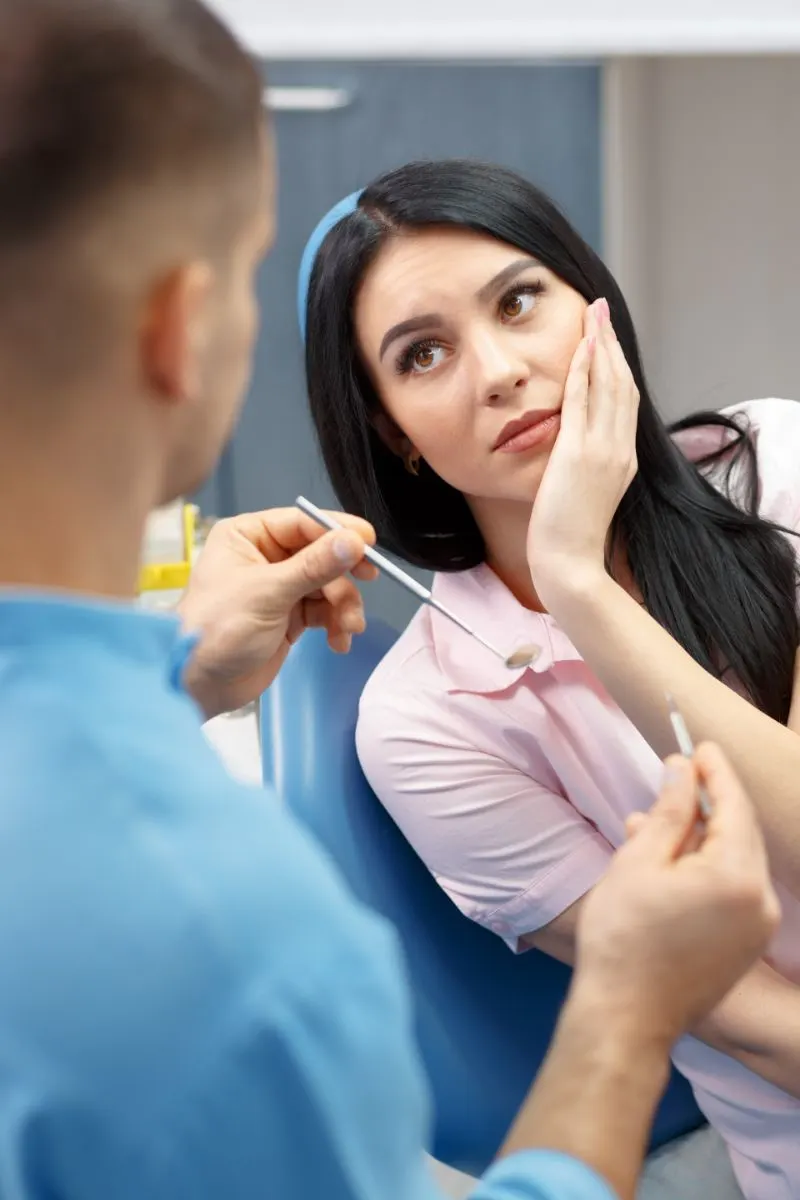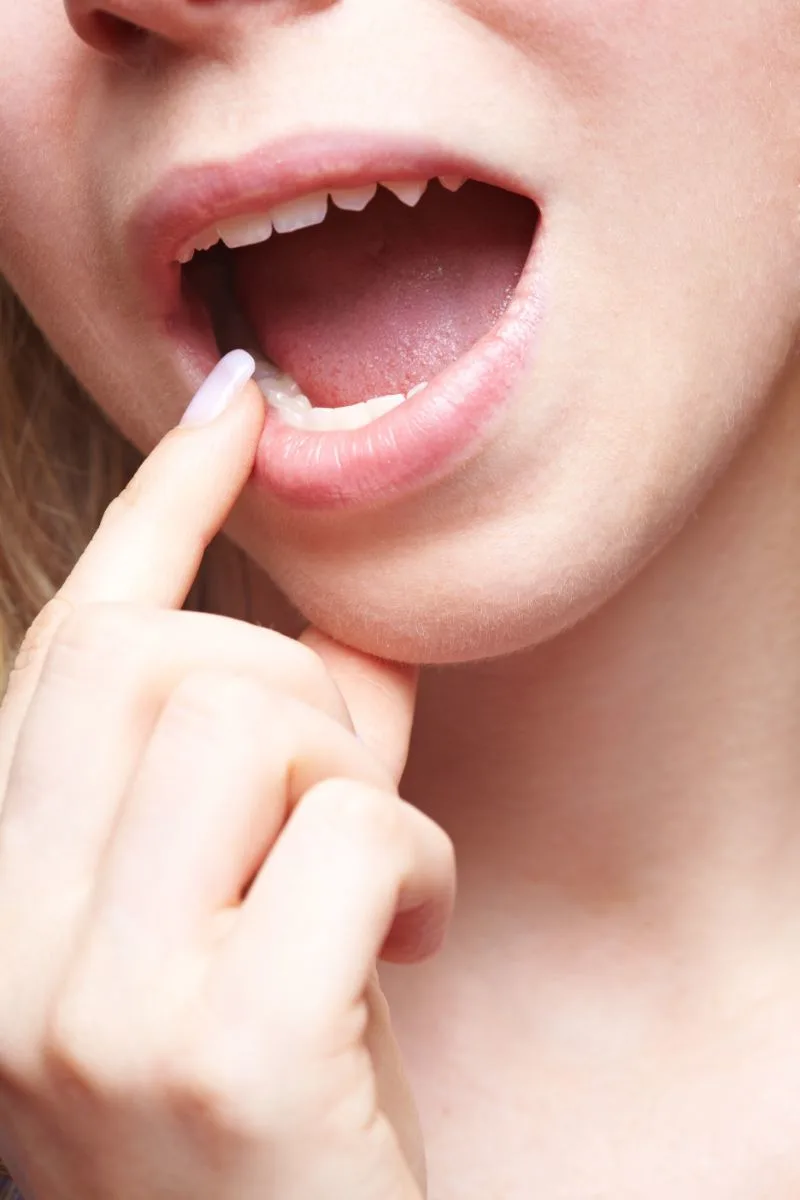Can I eat sushi after wisdom teeth removal?
Short answer – The answer to whether you can eat sushi after wisdom teeth removal isn’t straightforward. Although sushi’s main components—rice and fish—are soft and require minimal chewing, other ingredients like wasabi, soy sauce, and pickled ginger might irritate the healing site and hinder recovery. Some suggest waiting about a week post-procedure to allow initial healing, while others recommend waiting at least two weeks or until complete healing.
Introduction
As a health writer with a decade of experience under my belt, I’ve inquired into a plethora of topics.
Today, however, I find myself exploring a rather unique and intriguing subject – the intersection of dental health and gastronomy.
More specifically, the question that piques my curiosity is whether one can indulge in sushi after wisdom teeth removal.
The Wisdom Behind Wisdom Teeth Removal
Our journey begins with the enigma of wisdom teeth.
These third molars have a knack for making their grand entrance between the ages of 17 and 25, a period often associated with the attainment of ‘wisdom,’ hence the name. But what exactly are these teeth, and why do they sometimes necessitate extraction?
Much like their dental siblings, wisdom teeth are a part of our evolutionary inheritance.
Our ancestors needed these robust molars to grind down plant tissue. However, as our diets have evolved and become softer and our jaws have become smaller, there’s often not enough room for these late bloomers in our mouths.
This lack of space can lead to various complications, turning these teeth from sources of wisdom to woe.
When wisdom teeth grow in alignment with the other teeth and the jawbone, they usually don’t cause problems. But more often than not, these teeth are misaligned or impacted.
Misalignment can cause the wisdom teeth to either angle away or towards the second molars or to be tilted inward or outward. This can crowd or damage adjacent teeth, the jawbone, or nerves.
Impaction is another common issue with wisdom teeth.
This happens when the teeth remain completely hidden within the gums.
Partially impacted wisdom teeth partially break through, but a portion of the tooth remains submerged in the gum. Both fully and partially impacted wisdom teeth can lead to pain, infection, and swelling of the face or neck.
These issues can also give rise to further complications such as gum disease and tooth decay, often because these teeth can be harder to clean than others.
The decision to extract wisdom teeth often hinges on whether their presence will likely cause future dental problems. Some dentists adopt a wait-and-see approach, while others advocate for early removal, typically in young adulthood.
The Post-Operative Dietary Dilemma
Navigating the post-operative dietary landscape after wisdom teeth removal can be daunting.
This period is crucial, as your mouth is tender and healing, and what you eat or drink is integral to your recovery process.
Following the extraction procedure, it’s not uncommon to experience swelling, pain, and limited jaw mobility.
These symptoms can make eating a challenging endeavor. To add to this, there’s a risk of developing a painful condition known as ‘dry socket’ if the blood clot that forms in the extraction site is disturbed2.
Given these factors, dentists generally recommend a soft food diet in the days immediately following the surgery.
The goal is to minimize chewing and any contact with the surgical site.
Foods like yogurt, mashed potatoes, scrambled eggs, and smoothies are often suggested because they require little to no chewing and are less likely to irritate the extraction site.
But it’s not just about what you eat; how you eat also matters.
It’s advisable to avoid using straws as the suction action can dislodge the blood clot and lead to a dry socket. Hot foods and drinks should also be avoided initially as they can increase swelling and bleeding.
Another important aspect of post-operative care is hydration.
Keeping yourself hydrated aids in recovery, but care should be taken to sip fluids gently. Alcohol, caffeine, and carbonated drinks are best avoided as they can interfere with the healing process.
Nutrition also plays a crucial role in recovery. While your diet may be limited, it’s essential to ensure that you’re getting adequate nutrients to aid healing. Foods rich in vitamins A and C, such as sweet potatoes and bell peppers, have been shown to help with wound healing.
Sushi – A Soft Food Paradox
At first glance, sushi appears to be an ideal candidate for a post-operative diet.
It’s soft, requires minimal chewing, and is rich in nutrients, not to mention it’s a widely loved dish known for its delicate balance of flavors. However, as we delve deeper, we find it’s a bit more complex than it initially seems.
Sushi, in its most basic form, consists of vinegared rice paired with various ingredients, primarily seafood.
The soft texture of the rice and fish seems ideally suited for a mouth recovering from surgery. Plus, the high protein content of fish can aid in the healing process2.
But sushi is more than just rice and fish. It often includes other ingredients like wasabi, soy sauce, and pickled ginger, which can pose challenges to a healing mouth.
Wasabi, known for its fiery heat, can irritate the surgical site and possibly disrupt the healing process. Its strong flavor might also be overwhelming when your taste buds are still recovering from the effects of anesthesia.
Similarly, while delicious and beneficial under normal circumstances, pickled ginger can be too acidic for a post-operative diet. The acidity can potentially disturb the healing process and cause discomfort.
Soy sauce, another common accompaniment to sushi, is high in sodium, which can increase swelling and inflammation, hindering recovery.
Can I Eat Sushi After Wisdom Teeth Removal?
If you’re a sushi aficionado, you might find yourself asking this question after having your wisdom teeth removed. The answer, however, isn’t as straightforward as you might hope.
While sushi’s main components—rice and fish—are soft and require minimal chewing, there are other factors to consider, such as the additional ingredients and the risk of food particles getting lodged in the healing site.
Some suggest that sushi can be consumed about a week after the procedure. This time frame allows initial healing to take place, reducing the risk of dislodging the blood clot that forms in the extraction site, which is important for healing.
However, others recommend waiting at least two weeks or until complete healing of the surgical site before eating regular sushi. This longer waiting period takes into account the potential risks associated with the other ingredients in sushi, like wasabi, soy sauce, and pickled ginger, which can irritate the healing site and hinder recovery, as previously discussed.
Takeaway
While it’s possible to enjoy sushi after wisdom teeth removal, it’s important to wait until initial healing has taken place and, even then, to proceed with caution. Avoid hard or crunchy toppings; be mindful of other ingredients that might irritate the healing site.
Always follow the specific advice given by your oral surgeon or dentist, as they have the best understanding of your situation.
Remember, while the lure of sushi might be strong, prioritizing your recovery will ensure you’re back to enjoying your favorite foods sooner rather than later.
READ THIS NEXT:
Is Shrimp Good For Acid Reflux?
